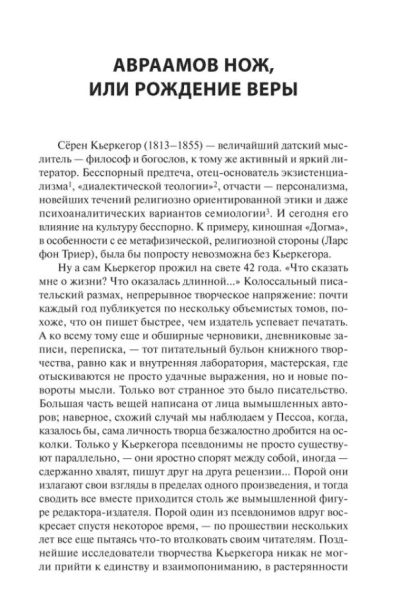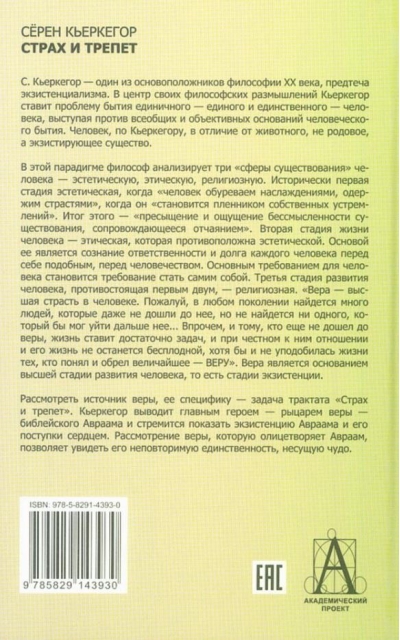Fear and trembling
9.99 €
The only thing available 2
Søren Kierkegaard is one of the founders of 20th century philosophy, a forerunner of existentialism. Kierkegaard places the problem of existence of an individual - single and only - person at the center of his philosophical reflections, opposing the universal and objective foundations of human existence. According to Kierkegaard, a person, unlike an animal, is not a generic, but an existing being. In this paradigm, the philosopher analyzes three spheres of human existence - aesthetic, ethical, religious. Historically, the first stage is aesthetic, when a person is overwhelmed by pleasures, possessed by passions, when he becomes a prisoner of his own aspirations. The result of this is satiety and a feeling of the meaninglessness of existence, accompanied by despair. The second stage of human life is ethical, which is opposite to aesthetic. Its basis is the consciousness of responsibility and duty of each person to his own kind, to humanity. The main requirement for a person is the requirement to become oneself. The third stage of human development, opposed to the first two, is religious. Faith is the highest passion in man. Perhaps, in any generation there are many people who have not even reached it, but there is not a single one who could go further than it... However, life poses enough tasks for those who have not yet reached faith, and with an honest attitude to them, his life will not remain fruitless, although it will not be like the life of those who understood and found the greatest - faith. Faith is the basis of the highest stage of human development, that is, the stage of existence. To consider the source of faith, its specificity - is the task of the treatise Fear and Trembling. Kierkegaard brings out the biblical Abraham as the main character - the knight of faith and strives to show Abraham's existence and his actions with the heart. Consideration of the faith that Abraham personifies allows us to see his unique uniqueness, which brings a miracle.
See also:
- All books by the publisher
- All books by the author
- All books in the series Philosophical technologies











